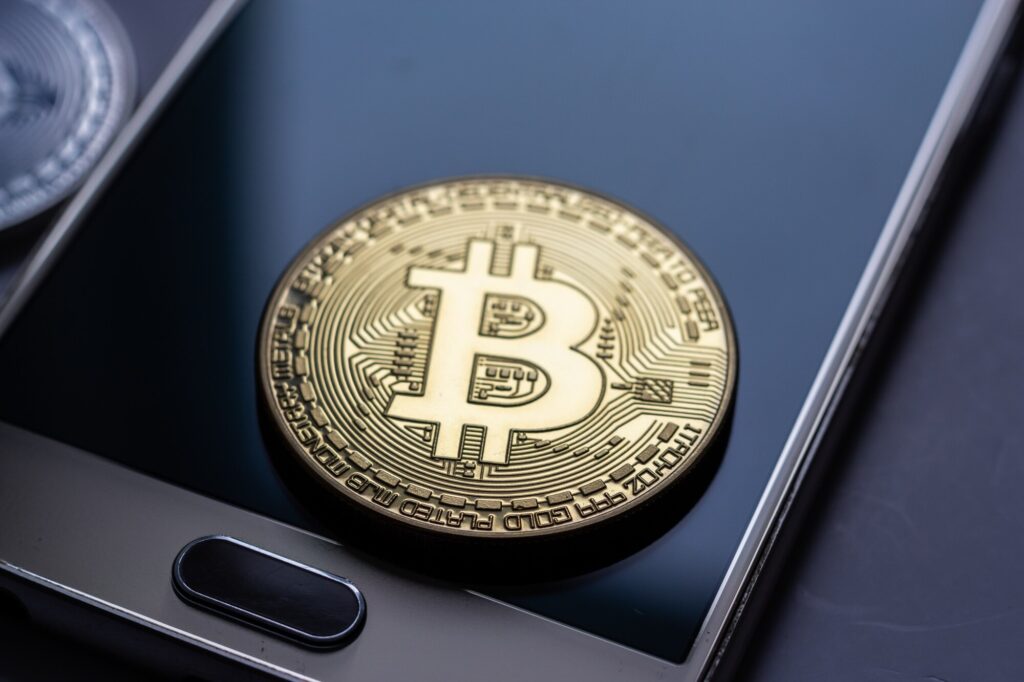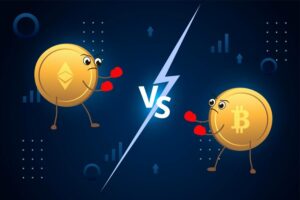Is Bitcoin the Digital Gold?
Is Bitcoin the new digital gold? Discover how the cryptocurrency compares to gold in value, scarcity, and long-term investment potential.
Bitcoin may be more than a currency—it could be the new gold of the digital age.
Bitcoin has taken center stage in financial discussions, drawing comparisons to one of history’s most trusted assets—gold. But does it truly deserve the title of “digital gold”? Let’s unpack what makes Bitcoin similar to, or different from, the precious metal.
At its core, gold has been a symbol of wealth and security for centuries. It has survived wars, recessions, and currency collapses. Investors often turn to it during market uncertainty. Bitcoin, created in 2009, is far younger—but it’s gaining traction as a modern alternative.
Bitcoin shares one essential trait with gold: scarcity. There will only ever be 21 million bitcoins.
This limited supply makes it deflationary by design, much like the finite nature of gold on Earth. In a world flooded with fiat currency, scarcity brings perceived value.
Unlike gold, Bitcoin exists only in digital form. It is decentralized, meaning no central bank or government controls it. This makes it immune to traditional monetary policy or inflation caused by excessive money printing. Many view this as a major advantage.

The New Standard for Safe-Haven Assets?
Traditionally, gold has been the safe-haven asset of choice. When markets crash, investors flock to it. Bitcoin, however, has shown similar behavior—particularly in recent financial crises.
In times of global instability, like during the COVID-19 pandemic or banking collapses, Bitcoin has often surged alongside gold. This parallel reaction raises the question: is Bitcoin developing the same “flight to safety” appeal?
While gold has thousands of years of trust backing it, Bitcoin relies on network consensus, cryptographic security, and a transparent blockchain. This new system may lack history, but it boasts unmatched technological transparency.
Gold is physical and tangible. Bitcoin is code on a ledger. Yet both offer insulation from central authority and currency manipulation. This unique overlap gives Bitcoin its “digital gold” label among modern investors.
Gold Bars or Digital Blocks? A Generational Choice
Younger generations, especially Millennials and Gen Z, are more inclined to invest in Bitcoin than in gold. They value portability, accessibility, and digital solutions. Bitcoin can be sent across the globe in minutes—gold cannot.
This ease of transferability makes Bitcoin an attractive alternative in our fast-paced world. While storing and transporting gold is costly and inconvenient, Bitcoin fits in a smartphone wallet.
However, Bitcoin remains volatile. Its price swings are much sharper than gold’s. For conservative investors, this may be a red flag. But for others, it’s an opportunity to grow wealth with higher risk and reward.
A Hedge Against Inflation
Gold’s reputation as an inflation hedge is well established. It holds purchasing power over time. Bitcoin is starting to develop the same identity, especially in countries with unstable currencies.
In nations facing hyperinflation—like Venezuela or Argentina—Bitcoin has become a lifeline. People use it to preserve savings, buy goods, and bypass devalued currencies. That’s a powerful real-world utility.
In more stable economies, investors see Bitcoin as a hedge against future risks. As governments print more money to stimulate growth, Bitcoin offers an escape hatch from potential inflation.
Still, Bitcoin is relatively new. It hasn’t been tested over centuries like gold has. That historical track record is one of gold’s strongest advantages.
Adoption, Regulation, and the Future
For Bitcoin to fully earn the “digital gold” title, adoption and regulation matter. Increasing acceptance by financial institutions, governments, and retail investors adds credibility.
Major companies and asset managers are adding Bitcoin to their balance sheets. Countries like El Salvador have even made it legal tender. Slowly, Bitcoin is entering the mainstream.
At the same time, global regulation remains a challenge. Legal clarity is key for widespread adoption. Gold is universally accepted; Bitcoin still faces scrutiny in some regions.
Conclusion: A Modern Answer to an Ancient Asset
Bitcoin may not replace gold, but it does complement it. Both assets can coexist as stores of value. One rooted in physical scarcity, the other in digital innovation.
The question isn’t whether Bitcoin is digital gold—it’s whether it becomes your gold. If you believe in decentralized finance, technological advancement, and scarcity-based value, Bitcoin may be your answer.
As financial systems evolve, Bitcoin offers a bold, modern alternative to age-old wealth preservation. And while it may still be early days, one thing is clear: digital gold is no longer just an idea. It’s here—and its value is being tested in real time.







